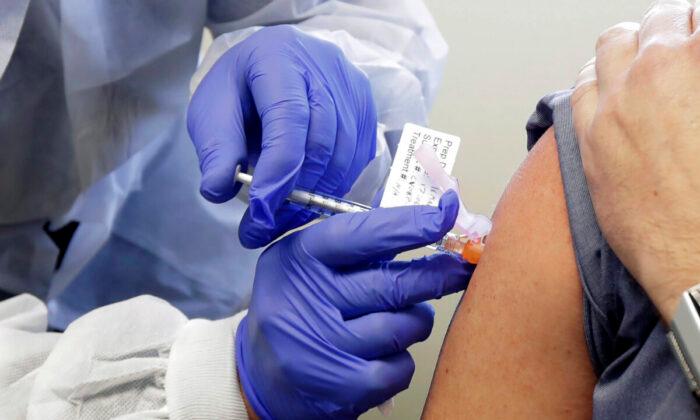Several experts who sit on an advisory panel that voted on Thursday to recommend the Pfizer-BioNTech COVID-19 vaccine for emergency use authorization have expressed concern about the vaccine’s potential effects on teenagers.

Dr. Archana Chatterjee, one of the members to vote against, told CNBC that her decision was prompted by the fact that the question posed to the panel was “whether the benefits outweigh the risks in that population as well,” adding, “we have very limited data in 16- and 17-year olds.”
Chatterjee noted, however, that she is “fully supportive” of the vaccine for those aged 18 and over.
“I have no difficulty, and I would have voted if that had been the option, to approve this, to authorize this vaccine for use in adults.”
Panel member Dr. David Kim, who also voted against, told CNBC that his no vote was because of the inclusion of 16- and 17-year-olds.
“I would have voted ‘yes’ most enthusiastically had the language been ’...18 years of age and older,'” he said.

Romero said the panel is scheduled to meet on Sunday and that if the FDA has by then posted its emergency use authorization, the ACIP would vote on the use of the Pfizer vaccine. The panel’s final recommendation would then need to be accepted by the Centers for Disease Control and Prevention (CDC), clearing the way for distribution.
The U.S. government has pledged to distribute 2.9 million doses of the vaccine to the public within 24 hours of FDA approval.
Health and Human Services Secretary Alex Azar told ABC on Friday morning that, “We could be seeing people getting vaccinated Monday, Tuesday of next week.”
Regarding safety, the FDA reviewed data from some 38,000 participants aged 16 and older, and found “a favorable safety profile, with no specific safety concerns identified that would preclude issuance of an EUA [emergency use authorization],” according to the analysis.
The analysis did note, however, that, “there are currently insufficient data to make conclusions about the safety of the vaccine in subpopulations such as children less than 16 years of age, pregnant and lactating individuals, and immunocompromised individuals.”
People who took part in the study did experience a number of side effects after taking the vaccine, with the FDA noting the most common were injection site reactions (84.1 percent), fatigue (62.9 percent), headache (55.1 percent), muscle pain (38.3 percent), chills (31.9 percent), joint pain (23.6 percent), and fever (14.2 percent).
Pfizer and BioNTech both hailed the panel’s vote on Thursday.
“I would like to thank the FDA’s advisory committee for recognizing the critical role that our vaccine may play in helping to address this ongoing pandemic. Today’s positive discussion and vote reinforces the potential of our COVID-19 vaccine candidate in helping to protect people against this deadly and devastating disease,” said Ugur Sahin, CEO and Co-founder of BioNTech, in a statement.
The companies were the first to seek emergency approval for a COVID-19 vaccine, with Moderna’s candidate, called mRNA-1273, scheduled for FDA review on Dec. 17.





